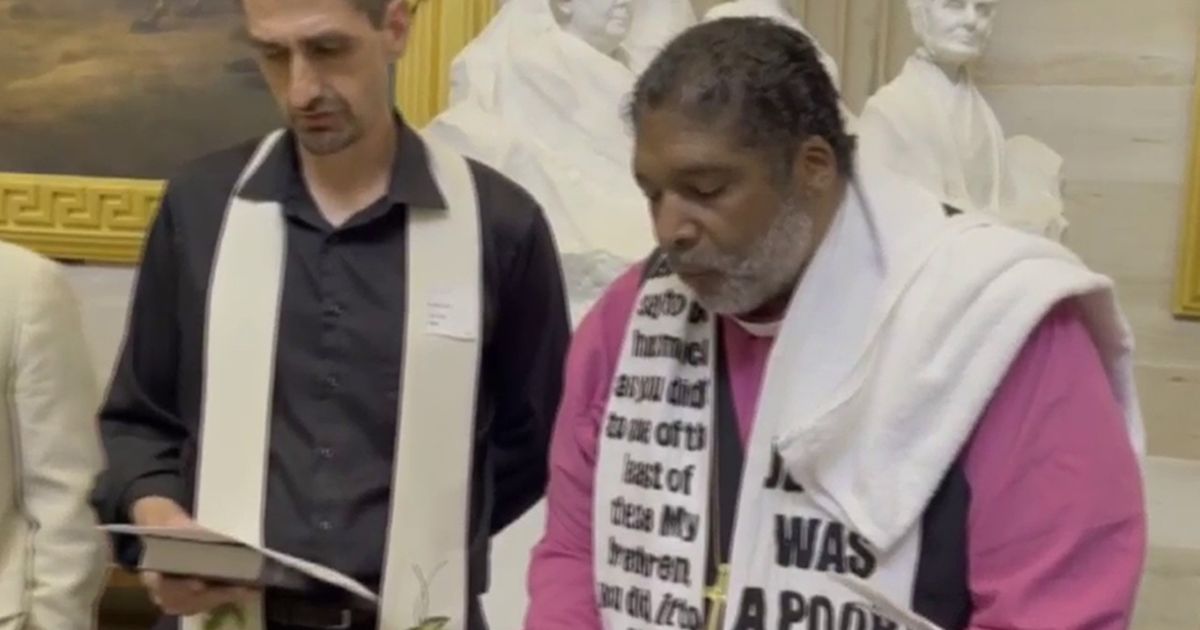An independent investigation found no evidence that Bishop
William J. Barber II — the former head of the North Carolina NAACP who now
leads a nonprofit focused on economic and racial justice — misused funds from
that group for alimony payments and other personal uses. The findings refute
allegations made against Barber in court filings last month.
The investigation was commissioned by the nonprofit,
Repairers of the Breach, Inc., which said it retained law firm Parker Poe Adams
and Bernstein LLP to conduct the investigation to determine the validity of the
allegations.
Barber’s ex-wife, Rebecca Barber, alleged
that in addition to the $225,000 salary William Barber has been earning from
Repairers of the Breach, the group also has been funneling $7,000 to him each
month “under the guise of alimony or financial support.” She also alleged that
the group is paying a salary to the woman he married in the months following
their divorce. The allegations were made in court
documents filed in late May in Durham County as part of litigation over the
divorce.
William Barber — an influential figure in state and national
politics, who started North Carolina’s “Moral Mondays” movement and delivered
the homily at Joe Biden’s presidential inauguration prayer service in 2021 —
has since asked the court to ensure certain financial documents and other court
records are kept secret, citing WRAL’s reporting last month and his desire to
avoid further media attention on information he says should remain
confidential.
The judge heading the case, Durham County District Court
Judge Amanda Maris, has yet to issue a final ruling on that request.
A lawyer for Rebecca Barber declined to comment
The Barbers divorced in November after nearly 40 years of
marriage, court records show. They went to mediation in April in an attempt to
settle parts of the divorce, including alimony as well as how to split up their
money and other marital property, a process called equitable distribution.
The mediation failed. In the late May court filing, Rebecca
Barber asked to bring the nonprofit into their litigation over equitable
distribution. She says millions of dollars in assets reported by the group
should be fair game for her to take as part of the divorce.
Rebecca Barber claims her ex-husband “maintains de facto
control over the financial accounts associated with Repairers of the Breach,
Inc., thereby suggesting that Repairers of the Breach, Inc., is being used as
an instrumentality of [William Barber’s] personal financial affairs. …
Repairers of the Breach, Inc., is functionally an alter ego of [William Barber]
and may possess or control assets that are marital in nature or otherwise
relevant to this Court’s equitable distribution determination.”
Whether Repairers of the Breach can be brought into the
lawsuit will be decided at a court hearing later this year, court documents
show. In the meantime, the nonprofit says, “there is no evidence to support
allegations that Reverend Barber improperly used or directed organizational
funds for personal benefit.”
The nonprofit said that Parker Poe conducted a thorough
review of financial records, in addition to the independent investigation that
included “interviews and a detailed review of payroll records, internal
communications, audit reports and organizational policies.”
“Parker Poe’s investigation confirmed that all funds
received by and disbursed to Reverend Barber were in compliance with and
pursuant to his Board-approved salary. We can confirm that all payments made to
Reverend Barber align with approved amounts, and any transfers made to a
personal account were made from his own salary, independent of Repairers of the
Breach.”
The nonprofit added: “No single individual within the
organization has sole or unfettered access to or control over its finances or
financial accounts. The organization maintains sound financial practices
through a system of rigorous checks and balances, including but not limited to
monthly account reconciliations, dual signatory requirements, segregation of
financial duties, regular oversight by the Board of Directors, and independent
annual audits.”







